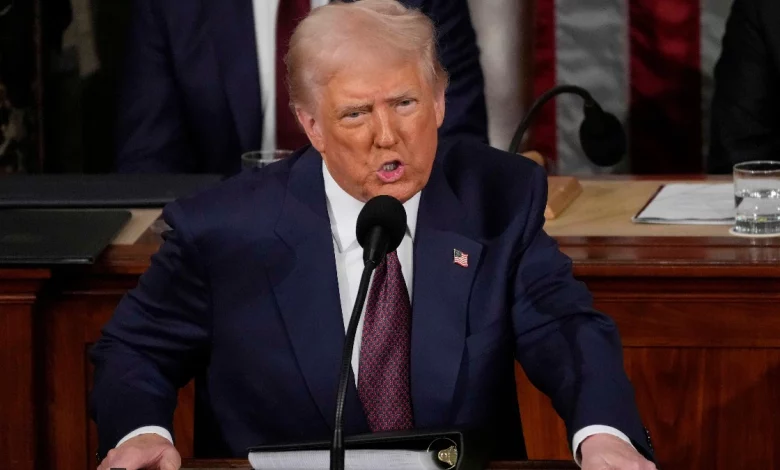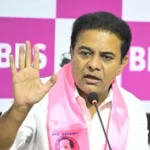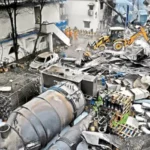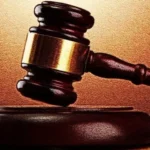Washington: U.S. President Donald Trump once again criticized the close ties between India and Russia, stating that both countries could drag their stagnant economies into the abyss together. The American president made these remarks while criticizing New Delhi and Moscow, just hours after announcing a 25% tariff on Indian goods and imposing penalties on India for its trade with Russia. He said, “I don’t care what India does with Russia.”
“They can take their stagnant economies down together, I don’t care,” the U.S. president added. “We’ve done very little trade with India, their tariffs are too high.” Trump announced on Wednesday that tariffs exceeding 25% would be imposed on India starting August 1. He also declared penalties on India for purchasing crude oil and military equipment from Russia.
U.S. Pressure on India Over Trade and Russia Policy
This surprising announcement comes just a day after Indian officials stated that a U.S. trade delegation would visit India starting August 25 to negotiate a trade agreement. The move is seen as a strategy to pressure India into complying with U.S. demands, especially after India recently secured favorable trade deals with key partners like Japan, the UK, and the European Union (EU).
Trump described India’s trade policies as among the toughest and most unfavorable. The U.S. president said, “Not everything is fine, so India will have to pay a 25% tariff starting August 1, as well as penalties for purchases from Russia.” These penalties were imposed because India has made significant purchases of oil and military equipment from Russia. India is the first country to face penalties for Russian imports.
India’s crude oil imports from Russia accounted for just 0.2% of total purchases before the Russia-Ukraine war but have now surged to 35-40%. After China, India is the largest buyer of Russian oil. Trump noted, “Although India is our friend, we’ve done relatively little trade with them over the years because their tariffs are too high—among the highest in the world. They have the toughest and most unfavorable non-monetary trade barriers.” He added that India has also purchased military equipment and energy products from Russia at a time when the world wants Russia to stop killings in Ukraine.
Washington
Washington, D.C., the capital of the United States, was founded in 1790 and named after George Washington, the nation’s first president. Designed by French architect Pierre Charles L’Enfant, the city is known for its iconic landmarks, including the White House, Capitol Building, and National Mall, which reflect its political and historical significance. As the seat of the U.S. government, it plays a central role in American history, culture, and global diplomacy.
India
India is a diverse and culturally rich country in South Asia, known for its ancient civilizations, vibrant traditions, and historic landmarks like the Taj Mahal and Varanasi. With a history spanning over 5,000 years, it was home to the Indus Valley Civilization, witnessed the rise of major religions like Hinduism, Buddhism, and Sikhism, and was shaped by empires such as the Mauryas, Mughals, and British colonial rule. Today, it is the world’s largest democracy, celebrated for its festivals, cuisine, and contributions to art, science, and philosophy.
Russia
Russia, the largest country in the world, spans Eastern Europe and Northern Asia, with a rich history dating back to the 9th-century Kievan Rus’. It became a major global power under the Tsars and later the Soviet Union, playing a pivotal role in 20th-century geopolitics. Today, it is known for its diverse culture, iconic landmarks like the Kremlin and Red Square, and influential contributions to literature, music, and science.
New Delhi
New Delhi, the capital of India, was officially inaugurated in 1931 as the new seat of the British colonial government, replacing Kolkata (Calcutta). Designed by British architects Edwin Lutyens and Herbert Baker, it features grand boulevards, government buildings, and landmarks like India Gate and Rashtrapati Bhavan (the presidential palace). Today, it serves as the political and cultural heart of India, blending colonial heritage with modern urban life.
Moscow
Moscow, the capital of Russia, is a historic city founded in 1147, known for its iconic landmarks such as the Kremlin, Red Square, and St. Basil’s Cathedral. It has served as the political, economic, and cultural heart of Russia for centuries, playing a central role in the country’s history, from the Tsarist era through the Soviet period to modern times. Today, Moscow is a vibrant metropolis blending rich traditions with contemporary architecture and global influence.
Japan
Japan is an island nation in East Asia with a rich cultural heritage spanning thousands of years, known for its blend of ancient traditions and modern innovation. Historically, it was shaped by feudal eras, samurai culture, and imperial rule, with influential periods such as the Heian era (794–1185) and the Edo shogunate (1603–1868). Today, Japan is celebrated for its unique arts, cuisine, Shinto and Buddhist temples, and global contributions in technology and pop culture.
UK
The United Kingdom (UK) is a sovereign country in northwestern Europe, consisting of England, Scotland, Wales, and Northern Ireland. With a rich history spanning centuries, it was once the heart of the vast British Empire and has played a major role in global politics, industry, and culture. Today, the UK is known for its historic landmarks, such as Stonehenge and the Tower of London, as well as its influential contributions to literature, science, and democracy.
European Union
The European Union (EU) is a political and economic union of 27 European countries, established to promote peace, stability, and prosperity after World War II. It traces its origins to the 1951 European Coal and Steel Community and the 1957 Treaty of Rome, evolving into the EU with the 1993 Maastricht Treaty. Today, it operates as a single market with shared policies, a common currency (the euro, used by 20 members), and institutions like the European Commission and Parliament.






